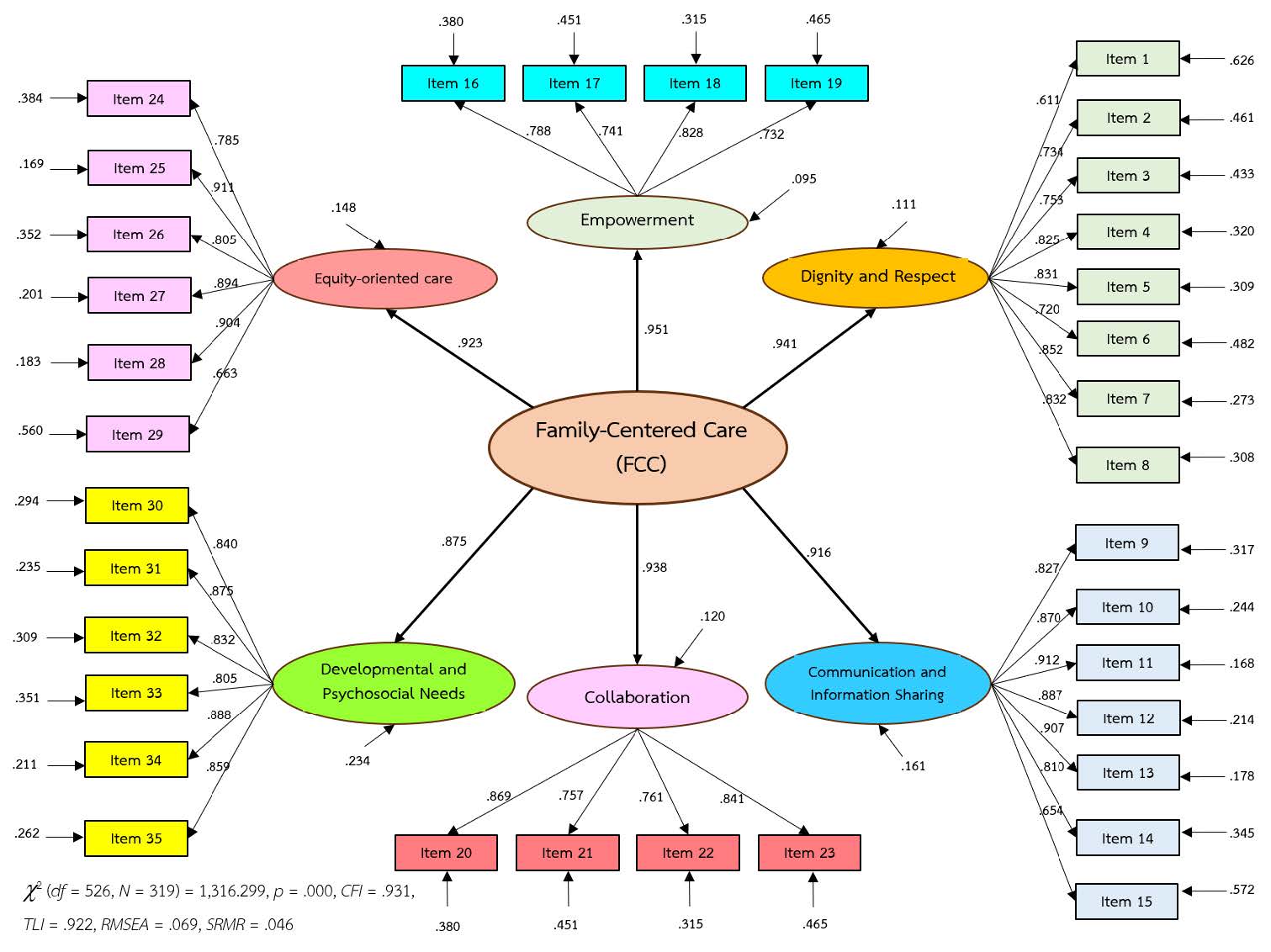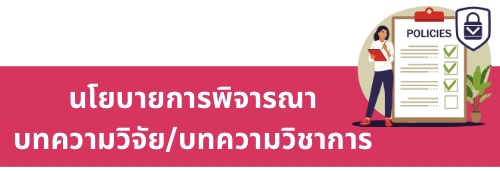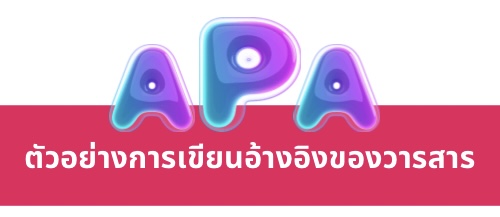การพัฒนาและตรวจสอบคุณภาพของแบบวัดการดูแลผู้ป่วยเด็กโดยมีครอบครัวเป็นศูนย์กลาง
คำสำคัญ:
การดูแลผู้ป่วยเด็กโดยมีครอบครัวเป็นศูนย์กลาง, ผู้ป่วยเด็ก, การวิเคราะห์องค์ประกอบเชิงยืนยันบทคัดย่อ
การวิจัยเชิงบรรยายนี้มีวัตถุประสงค์เพื่อพัฒนาและตรวจสอบคุณภาพของแบบวัดการดูแลผู้ป่วยเด็กโดยมีครอบครัวเป็นศูนย์กลาง ตัวอย่าง คือ ครอบครัวผู้ป่วยเด็กที่เข้ารับการรักษาในหอผู้ป่วยเด็ก โรงพยาบาลรามาธิบดี จำนวน 319 คน เลือกตัวอย่างแบบเจาะจง เครื่องมือวิจัย คือ แบบวัดการดูแลผู้ป่วยเด็กโดยมีครอบครัวเป็นศูนย์กลาง มีลักษณะเป็นมาตรประมาณค่า 5 ระดับ วิเคราะห์ข้อมูลโดยใช้ความถี่ ร้อยละ ค่าเฉลี่ย ส่วนเบี่ยงเบนมาตรฐาน การทดสอบสัมประสิทธิ์แอลฟาของครอนบาค การตรวจสอบความตรงเชิงโครงสร้างด้วยการวิเคราะห์องค์ประกอบเชิงสำรวจและการวิเคราะห์องค์ประกอบเชิงยืนยัน
ผลการวิจัยพบว่า แบบวัดการดูแลผู้ป่วยเด็กโดยมีครอบครัวเป็นศูนย์กลางที่พัฒนาขึ้นประกอบด้วย 6 องค์ประกอบ คือ 1) การเคารพและการยอมรับความแตกต่างของแต่ละครอบครัว 2) การสื่อสารและการแลกเปลี่ยนข้อมูลทางสุขภาพ 3) การเสริมพลังอำนาจให้ผู้ป่วยเด็กและครอบครัว 4) การส่งเสริมให้ผู้ป่วยเด็กและครอบครัวเข้ามามีส่วนร่วมในการดูแลรักษา 5) การดูแลรักษาอย่างเท่าเทียม และ 6) ความต้องการด้านพัฒนาการและจิตสังคม ประกอบด้วยข้อคำถาม 35 ข้อ มีดัชนีความตรงเชิงเนื้อหาอยู่ระหว่าง .87 - 1.00 มีค่าสัมประสิทธิ์ความเที่ยงของแต่ละองค์ประกอบอยู่ระหว่าง .886 - .965 และมีค่าสัมประสิทธิ์ความเที่ยงรวม เท่ากับ .984 ผลการตรวจสอบความตรงเชิงโครงสร้างด้วยวิธีการวิเคราะห์องค์ประกอบเชิงสำรวจ พบว่า มี 6 องค์ประกอบที่มีค่าไอเกนมากกว่า 1.00 และสามารถอธิบายความแปรปรวนของการดูแลผู้ป่วยเด็กโดยมีครอบครัวเป็นศูนย์กลางได้ร้อยละ 82.28 และผลการตรวจสอบความตรงเชิงโครงสร้างด้วยวิธีการวิเคราะห์องค์ประกอบเชิงยืนยัน พบว่า โมเดลมีความสอดคล้องกับข้อมูลเชิงประจักษ์ (2 (df = 526, N = 319) = 1,316.299, p = .000,
2/df = 2.50, CFI = .931, TLI = .922, RMSEA = .069, SRMR = .046)
ผลการวิจัยนี้แสดงให้เห็นได้ว่า แบบวัดการดูแลผู้ป่วยเด็กโดยมีครอบครัวเป็นศูนย์กลางมีความตรงและความเที่ยงเหมาะสมในการนำไปใช้ประเมินพยาบาลที่ให้การดูแลผู้ป่วยเด็กโดยมีครอบครัวเป็นศูนย์กลางตามการรับรู้ของบิดาหรือมารดาได้
Downloads
เอกสารอ้างอิง
Bruce, B., Letourneau, N., Ritchie, J., Larocque, S., Dennis, C., & Elliott, M. R. (2002). A multisite study of health professionals' perceptions and practices of family-centered care. Journal of Family Nursing, 8(4), 408-429. https://doi.org/10.1177/107484002237515
Coyne, I., Holmström, I., & Söderbäck, M. (2018). Centeredness in healthcare: A concept synthesis of family-centered care, person-centered care and child-centered care. Journal of Pediatric Nursing, 42, 45-56. https://doi.org/10.1016/j.pedn.2018.07.001
Davidson, J. E., Aslakson, R. A., Long, A. C., Puntillo, K. A., Kross, E. K., Hart, J., . . . Curtis, J. R. (2017). Guidelines for family-centered care in the neonatal, pediatric, and adult ICU. Critical Care Medicine, 45(1), 103-128. https://doi.org/10.1097/CCM.0000000000002169
DeVellis, R. F., & Thorpe, C. T. (2022). Scale development: Theory and applications (5th ed.). Los Angeles, CA: Sage.
Gill, F. J., Pascoe, E., Monterosso, L., Young, J., Burr, C., Tanner, A., & Shields, L. (2014). Parent and staff perceptions of family-centered care in two Australian children’s hospitals. European Journal for Person Centered Healthcare, 1(2), 317-325.
Hair, J., Black, W., Babin, B., & Anderson, R. (2019). Multivariate data analysis (8th ed.). Hampshire, UK: Cengage Learning.
Jain, S., Reno, R., Cohen, A. K., Bassey, H., Master, M., & Nichols, C. R. (2020). A family-centered mixed-methods needs assessment for the system of care for young children with social-emotional and behavioral concerns. Children and Youth Services Review, 117, 105243. https://doi.org/10.1016/j.childyouth.2020.105243
Johnson, B., Abraham, M., Conway, J., Simmons, L., Edgman-Levitan, S., Sodomka, P., . . . Ford, D. (2008). Partnering with patients and families to design a patient-and family-centered health care system: Recommendations and promising practices. Cambridge, MA: California HealthCare Foundation.
Kline, R. B. (2023). Principle and practice of structural equation modeling (5th ed.). New York, NY: Guilford Press.
Kuewong, G., & Wongwanich, S. (2021). Needs identification and analysis in patient-and family-centered care of pediatric nurses and families. Thai Red Cross Nursing Journal, 14(1), 95-108.
Prasopkittikun, T., Srichantaranit, A., & Chunyasing, S. (2020). Thai nurses’ perceptions and practices of family-centered care: The implementation gap. International Journal of Nursing Sciences, 7(1), 74-80.
Queensland Heath. (2021). Child and family centred care: Evidence-based principles for statewide delivery of health services to critically unwell children. The State of Queensland: Queensland Government.
Rattanapibun K., Kongsaktrakul, C., & Patoomwan, A. (2011). Parent participation in the care of hospitalized children. Ramathibodi Nursing Journal, 17(2), 232-247.
Shelton, T. (1999). Family-centered care in pediatric practice: When and how? Development and Behavioral Pediatrics, 20(2), 117-119.
Shoghi, M., Shahbazi, B., & Seyedfatemi, N. (2019). The effect of the Family-Centered Empowerment Model (FCEM) on the care burden of the parents of children diagnosed with cancer. Asian Pacific Journal of Cancer Prevention, 20(6), 1757-1764. https://doi.org/10.31557/APJCP.2019.20.6.1757
Smith, W. (2018). Concept analysis of family-centered care of hospitalized pediatric patients. Journal of Pediatric Nursing, 42, 57-64. https://doi.org/10.1016/j.pedn.2018.06.014
Sobhy El-Said Hussein, A., El-Sayed Abd El-Gileel Ouda, W., & Mohamed Adly, R. (2022). Effect of family-centered care on mothers’ information needs, anxiety and depression level regarding care for their children undergoing heart surgery. Egyptian Journal of Health Care, 13(2), 158-172. https://doi.org/10.21608/ejhc.2022.228545
Somjainuek, J., Prasopkittikun, T., & Srichantaranit, A. (2016). Factors predicting pediatric nurses’ practices of family-centered care. Nursing Science Journal of Thailand, 34(2), 70-79.
Yerum, L., Kheawwan, P., Thanomlikhit, C., & Jaichaiyaphum, O. (2018). Needs of family caregivers of pediatric patients undergoing open heart surgery. Journal of The Police Nurses, 10(2), 370-375.

ดาวน์โหลด
เผยแพร่แล้ว
รูปแบบการอ้างอิง
ฉบับ
ประเภทบทความ
สัญญาอนุญาต
ลิขสิทธิ์ (c) 2024 วารสารพยาบาลตำรวจและวิทยาศาสตร์สุขภาพ

อนุญาตภายใต้เงื่อนไข Creative Commons Attribution-NonCommercial-NoDerivatives 4.0 International License.
ผลงานที่ได้ตีพิมพ์แล้วจะเป็นลิขสิทธิ์ของวารสารพยาบาลตำรวจ














